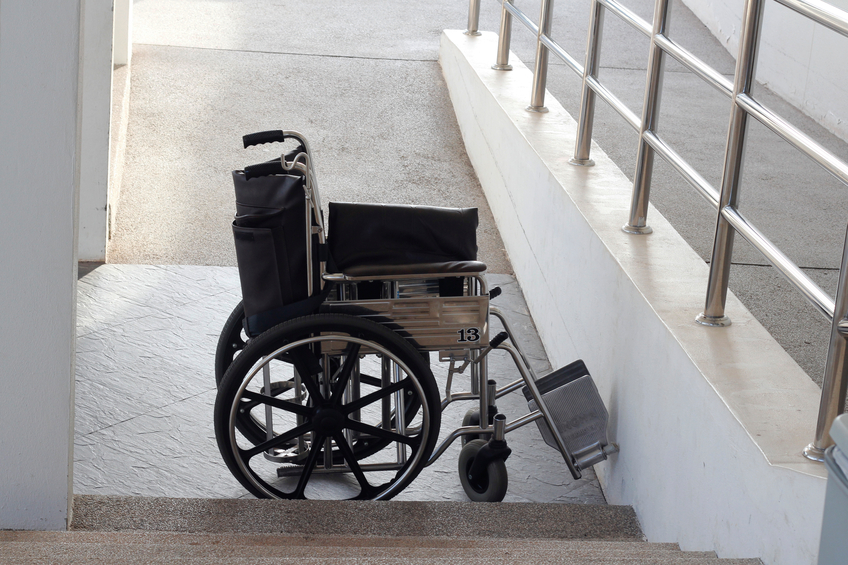Louisiana Environmental, ADA and Ethics 15 PDH Discount Package 2
Courses in this Package
Disposal Technologies for Hazardous and Toxic Waste (C02-006)
Mold Remediation in Schools and Commercial Buildings (C04-049)
Release Detection for Underground Storage Tanks and Piping (C04-050)
Americans with Disabilities Act (ADA) Overview (A02-005)
Public Right of Way Accessibility Guidelines (PROWAG) (C02-041)
Ethical Issue: Deciding if Something is a Gift or a Bribe (LE1-007)

This online engineering PDH course provides guidance for the design of disposal systems. A disposal system is a properly engineered facility used for ultimate disposal of hazardous waste into or on land or water. Disposal systems have general applicability to all types of waste streams.
The different disposal techniques are collectively capable of handling wastes in solid, semisolid, and liquid forms. As many disposal systems have shown migration or dispersion of the contaminants to the surrounding environment, there is usually strong public resistance to siting a solid or hazardous waste disposal facility.
This 2 PDH online course is applicable to civil and environmental engineers, as well as design and construction personnel involved with hazardous and toxic waste treatment and disposal activities.
This PE continuing education course is intended to provide you with the following specific knowledge and skills:
- Onsite disposal techniques
- Offsite disposal techniques
In this professional engineering CEU course, you need to review Chapter 5 of the US Corps of Engineers Publication EM 1110-1-502, "Disposal Technologies".
Upon successful completion of the quiz, print your Certificate of Completion instantly. (Note: if you are paying by check or money order, you will be able to print it after we receive your payment.) For your convenience, we will also email it to you. Please note that you can log in to your account at any time to access and print your Certificate of Completion.

This online engineering PDH course presents guidelines for the remediation/clean-up of mold and moisture problems in schools and commercial buildings. These guidelines include measures designed to protect the health of building occupants and remediators. Individuals with little or no experience with mold remediation should be able to use this course to help them make a reasonable judgement as to whether the situation can be handled in-house. It will also help those in charge of maintenance to evaluate an in-house remediation plan submitted by an outside contractor.
Molds can be found almost anywhere. They can grow on virtually any organic substance if moisture and oxygen are present. There are molds that can grow on wood, paper, carpet, foods, and insulation. When excessive moisture accumulates in buildings or on building materials, mold growth will often occur, particularly if the moisture problem remains undiscovered or unaddressed. It is impossible to eliminate all mold and mold spores in the indoor environment. However, mold growth can be controlled indoors by controlling moisture indoors.
When mold growth occurs in buildings, adverse health problems may be reported by some building occupants, particularly those with allergies or respiratory problems. Remediators should avoid exposing themselves and others to mold-laden dusts as they conduct their cleanup activities. Caution should be used to prevent mold and mold spores from being dispersed throughout the air where they can be inhaled by building occupants.
This 4 PDH online course is intended to environmental and facility engineers, building managers, custodians, and others who are involved in the development and implementation of mold prevention and remediation plans.
This PE continuing education course is intended to provide you with the following specific knowledge and skills:
- Understanding mold preventative measures
- Investigating, evaluating, and remediating moisture and mold problems
- The importance of Personal Protective Equipment
- Developing a Mold Remediation Plan
Upon successful completion of the quiz, print your Certificate of Completion instantly. (Note: if you are paying by check or money order, you will be able to print it after we receive your payment.) For your convenience, we will also email it to you. Please note that you can log in to your account at any time to access and print your Certificate of Completion.

This online engineering PDH course presents information about the 2015 federal underground storage tank (UST) system requirements and regulations. UST and its underground piping must have release detection to comply with federal law. In addition to complying with federal law, some implementing agencies may have additional regulations which apply to the system.
Each of the sections herein focus on one release detection method for underground tanks and/or the requirements for underground piping. You will find answers in this booklet to basic questions about how release detection methods work and which methods are best for your UST site.
As of September 2015, over 528,000 UST releases were confirmed since the UST program was implemented. At sites without release detection, contamination can spread undetected, requiring difficult and costly clean-ups.
If you have effective release detection, you can respond quickly to signs of releases. You can minimize the extent of or eliminate potential for environmental damage and the threat to human health and safety. Early action also protects you from high costs that can result from cleaning up extensive releases and responding to third-party liability claims.
This 4 PDH online course is applicable to petroleum engineers, owners/operators, and personnel involved with the release detection of underground storage tanks.
This PE continuing education course is intended to provide you with the following specific knowledge and skills:
- Learning the basic release detection requirements for underground storage tanks (USTs) and piping
- Understanding the different release detection methods for USTs and choosing the best option for a given application
- Familiarizing with the federal regulatory requirements for release detection
Upon successful completion of the quiz, print your Certificate of Completion instantly. (Note: if you are paying by check or money order, you will be able to print it after we receive your payment.) For your convenience, we will also email it to you. Please note that you can log in to your account at any time to access and print your Certificate of Completion.

This online engineering PDH course provides an overview of the Americans with Disabilities Act as it applies to facility design.
For individuals with disabilities, the Americans with Disabilities Act gives civil rights protections similar to those provided to individuals on the basis of race, color, sex, national origin, age, and religion. It guarantees equal opportunity for individuals with disabilities in public accommodations, employment, transportation, state and local government services, and telecommunications.
This 2 PDH online course is intended for all engineers involved in the design of facilities accessible to the public and regulated by the
This PE continuing education course is intended to provide you with the following specific knowledge and skills:
- Familiarizing with the types of facilities covered
- Understanding "public accommodation"
- Learning about the various requirements for accessible facilities
- Understanding when a "direct threat" to health or safety is present
- Understanding "readily achievable" barrier removal for existing facilities
- Familiarizing with the legal enforcement mechanisms available
- Learning about available tax credits and deductions for employers
In this professional engineering CEU course, you need to review the course document titled, "American with Disabilities Act (ADA) Overview" which is based on the original document (http://www.ada.gov/qandaeng.htm) published by the U.S. Equal Employment Opportunity Commission of the Civil Rights Division of the U.S. Department of Justice (DOJ), last updated on
Upon successful completion of the quiz, print your Certificate of Completion instantly. (Note: if you are paying by check or money order, you will be able to print it after we receive your payment.) For your convenience, we will also email it to you. Please note that you can log in to your account at any time to access and print your Certificate of Completion.

This online engineering PDH course presents the main requirements for
This 2 PDH online course is applicable to civil engineers, construction managers, architects and inspectors who are involved with construction in the public right of way.
This PE continuing education course is intended to provide you with the following specific knowledge and skills:
- Familiarizing with the government agencies involved with PROWAG
- Understanding which projects require PROWAG compliance
- Knowing the differences between the current ADA requirements and PROWAG
- Learning about PROWAG sidewalk and slope requirements
- Learning about PROWAG curb ramp requirements
- Learning about PROWAG detectable warning requirements
- Understanding practical examples of reconstructing existing conditions to be PROWAG compliant
In this professional engineering CEU course you will review the main requirements of PROWAG along with practical design examples.
Upon successful completion of the quiz, print your Certificate of Completion instantly. (Note: if you are paying by check or money order, you will be able to print it after we receive your payment.) For your convenience, we will also email it to you. Please note that you can log in to your account at any time to access and print your Certificate of Completion.

This online engineering PDH course will establish, through the presentation of many examples, the principles of distinguishing between a gift and a bribe.
The federal government has formulated detailed rules covering gifts given to executive-branch employees in many situations. The rules are published in the Code of Federal Regulations (CFR) and are illustrated through many examples. Even though the examples are intended for government employees (many of whom are engineers), they also apply to private-sector engineers in similar situations. This course presents selected CFR examples that furnish guidance on the ethics of gift giving in situations that are especially relevant to engineers.
This 1 PDH online course is intended for engineers seeking guidance on distinguishing between ethical gift-giving and bribery.
This PE continuing education course is intended to provide you with the following specific knowledge and skills:
- Familiarizing with definitions of a bribe and a gift
- Knowing the bribe status of a gift based on a personal relationship
- Understanding the conditions under which gifts to spouses are acceptable
- Knowing the need to avoid even the appearance of a gift being a bribe
- Recognizing when gifts involving free attendance at meetings and conferences are acceptable
- Understanding the importance of the cumulative effect of receiving even small gifts on a periodic basis
- Learning the importance of gifts received when on assignment rather than outside of work
Upon successful completion of the quiz, print your Certificate of Completion instantly. (Note: if you are paying by check or money order, you will be able to print it after we receive your payment.) For your convenience, we will also email it to you. Please note that you can log in to your account at any time to access and print your Certificate of Completion.